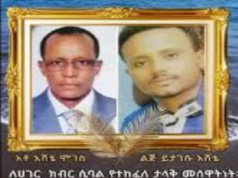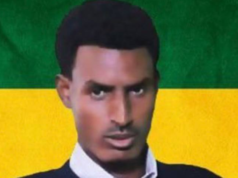Julius Maina
Regional Editor East Africa
This year marks the 25th anniversary of the 1994 Rwanda genocide. Between 800,000 and one million Tutsis and moderate Hutus were killed by marauding gangs over 100 days. In 2003 the United Nations, which infamously took no action, designated April 7 the “International Day of Reflection on the Genocide in Rwanda”.
To mark the day, we’re publishing articles that reflect on how the genocide changed the country and its people – and what the world can learn from it.
Twenty-five years on, the horror visited on hundreds of thousands is still difficult to imagine. “Hell” is the one word virtually every chronicler of the mass murder and rape uses to describe the genocide. Chigbo Arthur Anyaduba explains why. Meanwhile, Amanda Grzyb argues that the debate is far from settled over whether radio and other media directly incited violence, or if they were a secondary driver.
Talking about the violent past is difficult for those affected. Consider, for instance, that many children were born to the 350,000 victims of rape during the genocide. Sixty Rwandan youths took part in a research project that aimed to understand their perspectives. Laura Eramian and Myriam Denov found that for some talking openly about the past wasn’t a good thing. As one young person put it, silence about her origins gave her peace.
Those convicted of genocide continue to serve time in jails all over the world. But there’s a chance that some of them could leave prison early. Three early release requests have been made to the United Nations Mechanism for International Criminal Tribunals. This has enraged the country’s citizens and government alike, writes Jennifer Trahan.
The transition from truth to reconciliation continues in Rwanda. The country focused on establishing the accountability of individual perpetrators through the Gacaca court system. Should it have pursued the South African route of amnesty in exchange for truth? A quarter of a century later it’s clear there has been some healing, writes Cori Wielenga.
Rwanda under strongman Paul Kagame has been showered with praise for its remarkable economic progress and political stability since the genocide. But the country’s successes have come at a cost. Nic Cheeseman sets out why its development model, which trades democracy for development, is unlikely to work in other African countries.
The country’s fractious history has been marked by rivalries between ethnic groups and civil wars. Noel Twagiramungu and Joseph Sebarenzi argue that for Rwandans to find real healing the country needs to deepen democratic structures to make sure that all groups are equally represented in the government.
And lastly, an important lesson is that the world could have prevented the genocide. One way to ensure preventative action is taken in the future is to amend the first article of the UN’s convention on genocide. Christopher Ayres argues this should be amended to include sanctions for the inaction of member countries.


























